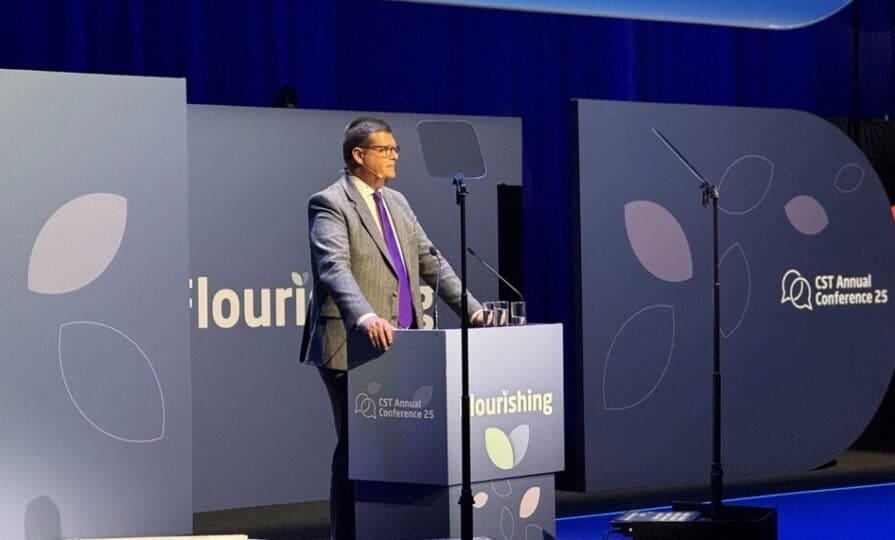Ofsted chief calls for ‘collaborative reform’ to drive school standards
Addressing concerns about the new inspection approach, Oliver said the changes were not overwhelming but intended to provide a fuller picture of school performance rather than relying on a single-word judgement

Register to get 1 free article
Reveal the article below by registering for our email newsletter.
Want unlimited access? View Plans
Already have an account? Sign in
Ofsted chief inspector Sir Martyn Oliver has urged academy trusts to embrace the watchdog’s reforms and use their collective agency to drive improvement across the education system.
Speaking at the Confederation of School Trusts (CST) annual conference in Birmingham, Oliver said the new inspection framework marked one of the most significant developments in Ofsted’s history and was designed to promote collaboration and recognise excellence across all types of schools.
He said Ofsted’s role was twofold: to identify where standards needed to be raised, and to highlight examples of best practice. Oliver said both aspects were essential, describing the former as Ofsted’s legal duty and the latter as its moral duty to children, learners and the professionals it inspects.
Oliver told delegates that academy trusts were “true system leaders” with a responsibility to drive change and ensure that every pupil could “achieve, belong and thrive”. He said trusts were not created to maintain the status quo but to raise standards higher, take risks and pursue improvement even when it was difficult.
Addressing concerns about the new inspection approach, Oliver said the changes were not overwhelming but intended to provide a fuller picture of school performance rather than relying on a single-word judgement. He said the renewed system would “give a full, rounded narrative that accounts for the experience of every child”.
He also rejected what he called a “false choice between inclusion and high standards”, insisting that schools could be both inclusive and high-achieving. He said the most inclusive schools tended to have calm classrooms where all children felt safe, adding that “inclusion demands high standards”.
Oliver dismissed claims that Ofsted had ignored headteachers’ wellbeing in designing the reforms. He said the changes aimed to create “smarter accountability that raises standards for children” while providing fairer and more detailed judgements for schools. The reforms, he added, were intended to help teachers by ensuring that reports reflected schools’ strengths and provided parents with clearer information.
He said there was a “persistent, yet flawed story” that poor inspection results automatically led to headteachers losing their jobs, but this did not reflect the reality of his experience. “Every school leader I’ve ever met – including those on the receiving end of a disappointing Ofsted grade – were in the job for the right reasons,” he said.
Calling for an end to what he described as the “unhelpful narrative of schools versus Ofsted”, Oliver said the inspectorate must be “rooted in the profession – inspection for the sector, by the sector, for children and their families”.
Closing his speech, Oliver said the reforms aimed to move the school system “from good to great for everyone, not just for a few”. He said: “It’s about ensuring that trusts use their collective agency in delivering the excellence that children and learners deserve. Because that is how we help every child to achieve, belong, thrive and flourish.”

